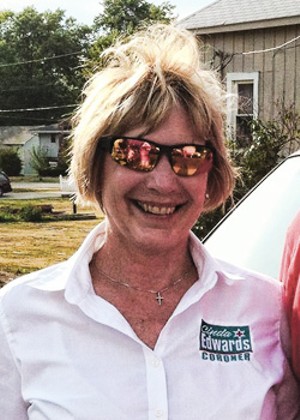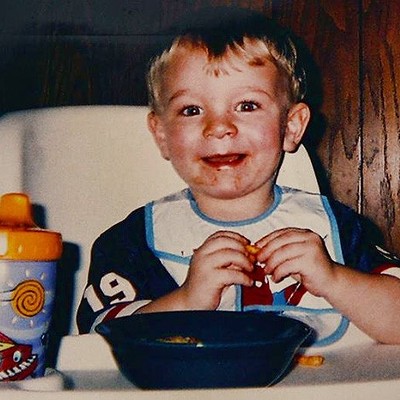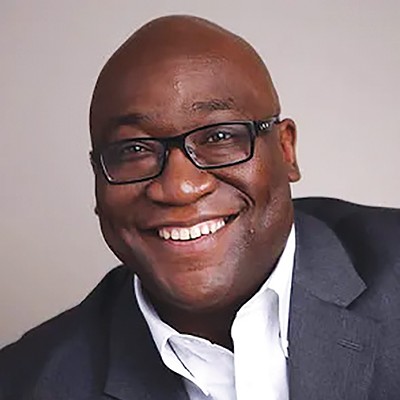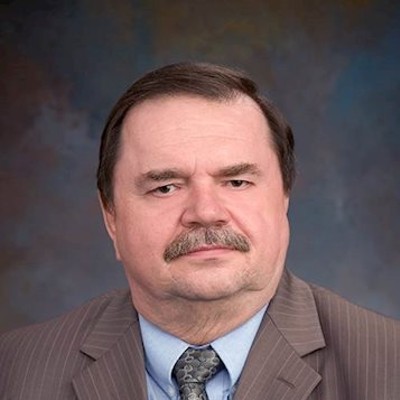Dr. Nathaniel Patterson has been sober since June 16, 2008, according to the Texas Medical Board that last month released the physician from requirements that he receive psychiatric care and attend Alcoholics Anonymous meetings while submitting to random testing for drugs and alcohol. He has been arrested several times, most recently in 2001, for such offenses as public intoxication, disorderly conduct and battery/resisting arrest.
Coroner Cinda Edwards defends Patterson, who has been guaranteed a salary of at least $175,000, with St. John’s Hospital and Memorial Medical agreeing to pick up some costs.
“He was on the wrong path when he was in high school,” said Edwards, who led efforts to recruit and hire a forensic pathologist to conduct autopsies. “He’s turned his life around.”
Edwards praised Patterson for divulging his troubles with alcohol and the law during the selection process, but, in practical terms, the doctor may have had little choice, given that records outlining his past are public under Texas law and are posted on the website of the Texas Medical Board.
“Respondent has been the subject of multiple alcohol-related arrests from 1996 through 2001, including three arrests for minor in possession, three for public intoxication, one for disorderly conduct and one for battery/resisting arrest,” Texas regulators wrote in the 2009 order that allowed Patterson to accept a residency position in the Lone Star state. “The last arrest occurred before his junior year in college, and he subsequently went on to graduate from the American University of the Caribbean Medical School in 2007.”
The 2009 order came one year after Patterson entered a physician assistance program in Indiana, where he enrolled in outpatient treatment and agreed to random drug screens, group therapy and regular attendance at 12-step meetings. In the 2009 order, Texas authorities also required Patterson to submit to drug tests, attend AA meetings and see a psychiatrist at least once a month.
Patterson late last year asked Texas regulators to terminate the order because he wanted to apply for a license to practice in Indiana, where he applied for licenses in 2008 and again in 2011 but withdrew applications before the Indiana Medical Licensing Board made decisions. In last year’s request to terminate the order, Patterson also said that drug testing fees and monthly visits to a psychiatrist were a financial burden and that AA meetings were proving a time constraint as he worked long hours while also studying for forensic pathology board exams.
The Texas board in February softened but did not terminate the 2009 order, reducing the number of required AA meetings to 10 per month and cutting back psychiatrist visits to once every three months.
“Given the stresses of practice and studies and the relatively short period of sobriety, it is too early to terminate the entire 2009 order,” regulators wrote in February this year.
Seven months later, on Sept. 30, the Texas board terminated the order on the same day that Patterson’s license expired in the Lone Star State. He is now awaiting licensure in Illinois.
Applications for medical licenses aren’t public in Illinois, but Edwards says that Patterson applied in August. Sue Hofer, spokeswoman for the Illinois Department of Professional Regulation, said that it takes the department an average of 26 business days to process a physician license.
Patterson could not be reached for comment.
County board chairman Andy Van Meter said that he isn’t worried about Patterson’s past troubles with alcohol and the law.
“I’m not concerned about it if the professionals who reviewed his credentials determined that he was an appropriate person,” Van Meter said. “Both the hospitals were involved in recruiting him into the Springfield community.”
Not so, according to Brian Reardon, spokesman for St. John’s Hospital, which, along with Memorial Medical Center, has agreed to help pay Patterson.
“This was really the coroner’s decision,” said Reardon, who declined to detail how much St. John’s has agreed to pay Patterson. “It’s really Cinda’s recruitment process, and all the background checks were done through the coroner’s office.”
Michael Leathers, spokesman for Memorial Medical Center, said that Memorial officials are aware of Patterson's past. In an email, Leathers noted that Patterson has completed an intensive outpatient treatment program. He said that Patterson has received positive evaluations from pathology programs at the University of Texas Southwestern Medical Center and has complied with the terms of the 2009 order issued by the Texas Medical Board.
Reardon says that St. John’s’ main role in the recruitment process was showing morgue facilities to Patterson and other candidates. Edwards said that five or six candidates came to Springfield for interviews.
“We had a lot of applicants,” Edwards said.
Van Meter, however, said that forensic pathologists are scarce.
“We’re fortunate to find anyone,” Van Meter said. “The availability of these board-certified pathologists is so restricted.”
The lack of a board-certified forensic pathologist helped lead to the ouster of former coroner Susan Boone, who was forced to resign in 2011 after complaints that her office had botched cases. Edwards was appointed to the job only after vowing to use only doctors who are board certified in forensic pathology.
Mark Wykoff, a Springfield criminal defense attorney, said that he believes Patterson’s history of alcohol abuse and arrests would be fair game for lawyers seeking to challenge his expertise.
“I have to believe it would be relevant to his professional credentials and his ability to come to an expert opinion,” Wykoff said.
But Edwards predicted great things for Patterson.
“He’s quite accomplished – he’s passed all his boards now,” the coroner said. “He’s very bright. He’s going to be a great pathologist. I have all the confidence in the world in him. … Let me assure you: The history of us having a substandard forensic pathologist is over.”
Contact Bruce Rushton at [email protected].




















